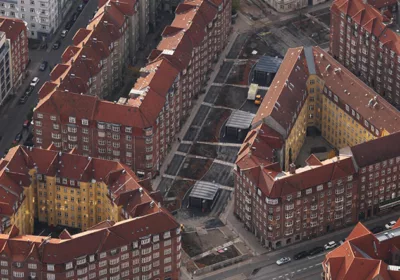With their high-tech appeal, automated parking systems increase the profits of a property by using 60% less space to park vehicles
Westfalia’s automated garages provide the same number of spaces using less building space than a conventional parking garage. A smaller garage correlates to increased profit-generating areas in commercial development projects. Profits are added by developing the additional space with higher income assets such as condos, retail spaces, offices or apartments.
Space is saved not by decreasing the amount of cars eligible to fit in a garage, but by densifying the amount of space available. Automated parking garages are able to accommodate two to three times the amount of vehicles compared to a self-parking, ramp-access conventional garage. The space is saved by replacing traditional ramps with automated lifts, parking cars closer together and reduction in internal circulation space allowing for significantly higher space optimization.
This is especially important in densely populated areas where there are land use restrictions and development air rights. With the increase of urban land redevelopment, developers are required to build in tight spaces, making it difficult to have a traditional conventional parking garage.
This holds true when a development project is being designed with real estate above ground and parking below ground. With below-grade conventional garages, costs associated with building the structure increase substantially with every level due to excavation costs.

